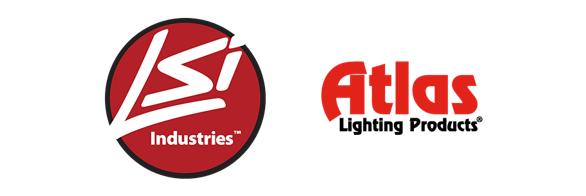3 Big Questions Surrounding LSI's Acquisition of Atlas Lighting Products

LSI Industries has recently acquired Atlas Lighting Products for $97.5M. By most accounts this is a solid move for both generally well-respected companies.
When acquisition news breaks, it usually sparks a stir. And then the speculation of chain-reactions begins. We did it too. To help manage the message, LSI and Atlas management apparently spent much of Tuesday and Wednesday on the phone with agents and distributors discussing the exciting news, explaining the strategic rationale and reinforcing its commitment to their business partners.
The LSI Sales team conveniently was at the company’s Cincinnati Headquarters for a national sales meeting, allowing them to align and execute a communication strategy. According to the agents and distributors with whom we spoke, the discussions with distributors and agents seemed to focus on the strategic business rationale and the reinforcement of utilizing a two-channel approach.
During a Wednesday investor webcast LSI Industries CEO, Dennis Wells, indicated that Atlas initiated the acquisition dialogue. “When we were approached by Atlas last fall to discuss the possibility of a combination, we had already identified them. They were a known entity to us.” Wells explained that Atlas will maintain its brand name, and that the company will stay in Burlington, NC. He elaborated on this commitment by describing the high importance of the North Carolina operations while adding that the company “has signed a 7-year lease on the building with 3 renewals on top of that.”
Companies:
LSI Industries:
Cincinnati, OH headquarters with other locations in Kentucky and New York.
$250M in lighting sales.
750 employees
Atlas Lighting
Burlington, NC headquarters.
$58M sales
150 employees
Channels:
Historically LSI has been primarily focused on the project channel with made-to-order products. Atlas Lighting’s focus has been stock and flow.
LSI asserted that it will implement a two brand, two channel strategy. Both brands will continue to serve their respective channels; LSI with projects, Atlas with stock & flow.
Product lines:
Wells asserted throughout the call that there is very little product portfolio overlap between the two companies. We generally agree. In LSI’s stock-and-flow-focused catalog, “Stocking Solutions”, three areas are highlighted:
- Downlights
- LED panels and
- Floods & wall packs.
It’s that third area that will likely cause the company to evaluate rationalization and enhancements through consolidation. They will also need to manage any channel/agent conflict that arises from it. Additionally, Atlas makes canopy lights and linear LED wet location fixtures that overlap with LSI’s solid offering in those categories.
Overall, it seems to be a very manageable matter considering all the positive, non-overlapping upside that the LSI and Atlas combination bring to the table.
Agents:
Wells discussed “minimal agent overlap” and stated that the company “absolutely intends” maintain the Atlas brand, channels and agency base.
LSI tends to align with traditional lighting agents -- usually ones with more of a specification and project focus. Conversely, Atlas is usually aligned with electrical supply agents that typically represent very few lighting lines and sell other electrical products like conduit, wire, fittings, etc.
The two brands have only one common agent in North America: Bell & McCoy Lighting and Controls. The agency is quite large as it spans multiple markets in Texas, Oklahoma, Arkansas, Louisiana and Mississippi. Our sources close to the market estimate that Bell & McCoy delivers close to 20% of all LSI C&I lighting sales.
Our 3 Big Questions:
1. Will we see some agent consolidation in the short term?
The investor webcast convinced us that wide-sweeping immediate agency changes are not planned. Examining many of the LSI agents’ specification-focused profile causes us to believe that many LSI agents would not excel at driving stock and flow business better than the counterpart Atlas agent could. There are, however, some markets where the Atlas agent is small – and the much larger LSI agent seems to be more of a project/contractor/distributor agent than a specification-focused agent, thus potentially making them a better fit for the Atlas brand. These scenarios might create some opportunistic exceptions to the basic strategy described in the initial communication. Time – and sales – will tell the story, here.
2. How will LSI and Atlas leverage stock and flow business to drive more project business (and vice versa)?
This can be challenging to accomplish with separate agent sales forces calling on the same distributor. Perhaps they will broker "major distributor synergy meetings" and “agent synergy meetings” in each marketplace to get the networking started. Perhaps they will require the LSI and Atlas sales managers to regularly collaborate on markets and opportunities. And perhaps they form a rebate program that rewards distributors for purchases of either brand though either channel/agent.
3. Will Acuity, Eaton or other manufacturers apply pressure to shared LSI agents?
Acuity and LSI utilize the same agents in Arizona, Kentucky, Western Michigan, Idaho, Alaska and British Columbia. Eaton shares agents with LSI in Orlando, Winnipeg, Alberta, Saskatchewan. We wouldn’t expect this to create "us or them" ultimatums for these agents, but it is common for pressure to be applied when acquisitions and consolidations occur.